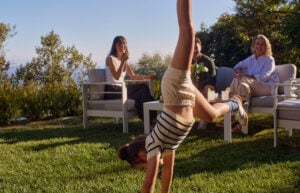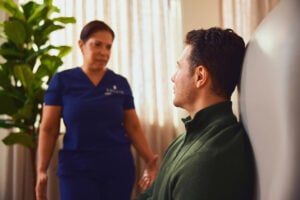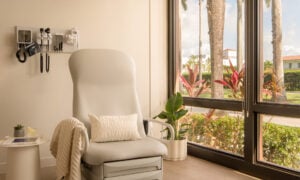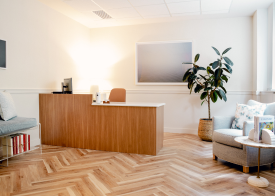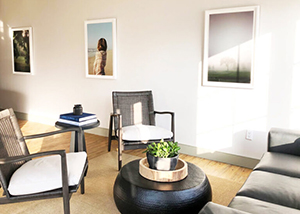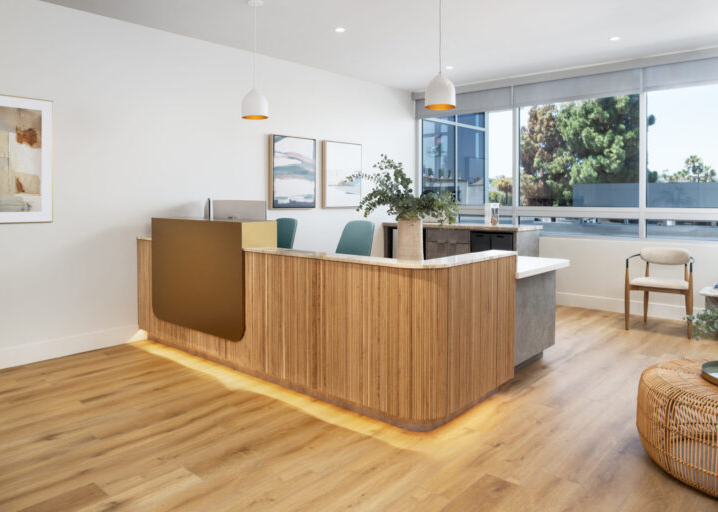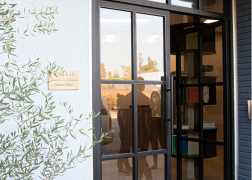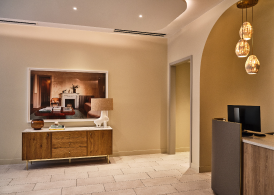When were you first diagnosed with ulcerative colitis?
I was diagnosed when I was 19 years old. I’m a sheltered only child who is a product of a very loving small family nucleus and a fiercely protective mother. I had never left home before moving to New York City to be at Columbia University. It was the first time I was forced out of my comfort zone. It triggered something latent inside me, a part of me that needed control to feel safe: I started developing symptoms that were odd, strange, painful and scary. I told my mother one day that I was bleeding when I went to the bathroom. She thought, “It must be piles, honey.” I trusted she was right. Then the summer between freshman and sophomore year, I was bleeding a lot more and my mother saw it and realized, “OK, this is not piles,” and instantly took me to the doctor kicking and screaming. They did a colonoscopy and very soon diagnosed me with ulcerative colitis.
What did it feel like to find out?
When a 19-year-old hears that you have an autoimmune disease and there’s no cure for it, it was definitely one of the most surreal moments of my life. I didn’t quite comprehend what it meant. There was a part of me that just felt that was going to be my life: this pain was going to be something I just had to deal with and had to live with and had to accept. And I wish I could tell that 19-year-old that wasn’t true. Because it definitely caused a lot of trauma and fear.
"There was a part of me that just felt that was going to be my life: this pain was going to be something I just had to deal with and had to live with and had to accept. And I wish I could tell that 19-year-old that wasn’t true."
What kind of an impact did your condition have on your life?
I went back to university with all these drugs the doctors told me I would have to take for the rest of my life and they didn’t really seem to help. I was scared to take classes in the morning because my colitis was the worst in the mornings. I had to rearrange my whole schedule around classes post 10 or 11 o’clock. I was often stuck in my dorm room, unable to leave. Often I’d have to run out of class trying to make it to the bathroom in time. I literally shat and bled my way through New York City. I have publicly shat and had mucus and blood come out of me in Starbucks, Duane Reade, taxis, elevators, first dates, you name it. As a teenager and 20something when you’re first starting to date, first time having sex, all these things… I was also an actor—and a theater actor at that!—so suddenly the thought of being onstage when you had uncontrollable bowel movements and rectal bleeding was something that really destroyed my confidence as an actor. Because suddenly I was scared to be onstage because what if I had an accident? What if I had an attack? It would just be devastating.
Any particularly embarrassing or humorous anecdotes you can share?
I remember one of the first times I went on a date and spontaneously spent the night with a guy in New York… I woke up in the morning and while he was showering and getting ready for work, I suddenly had that dreaded feeling – I was going to have an attack. His New York City one bedroom apartment only had one bathroom, and I couldn’t hold it in! Blood, mucus and shit came out of me and all over his wooden floors. I was terrified and didn’t know what to do, I really liked him but I hadn’t yet told him about my illness – it wasn’t particularly sexy! So, I panicked and instead of telling him, I found his laundry, grabbed a dirty t-shirt, cleaned up my mess and hid the shitty t-shirt under the pile of laundry! Needless to say I never heard from him again!!! But these were the things I was doing to survive my illness and it’s embarrassing side effects. Between the ages of 19 to 21, that was my reality. I was constantly in pain and finally I was hospitalized because things had gotten so bad. It was right around my junior year when things really changed.
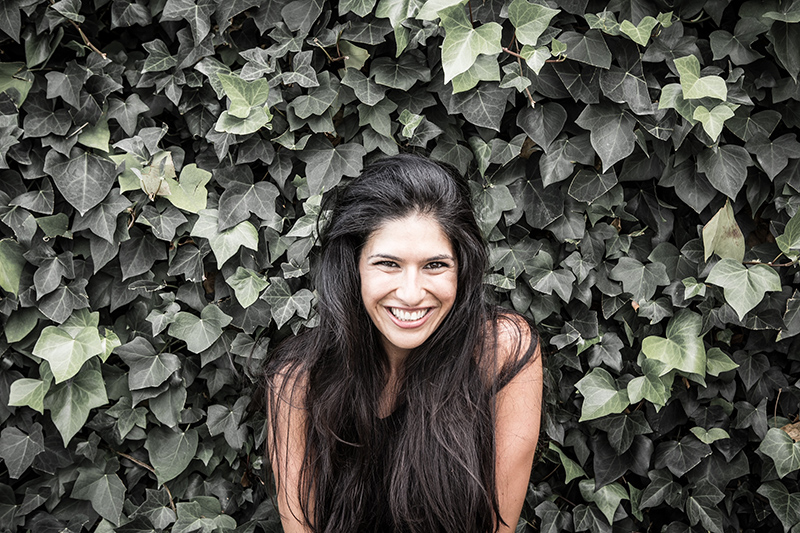
Did they change because you tried a different treatment?
A doctor put me on steroids and I got my colitis under control. But I didn’t want to be on steroids and I didn’t want to be on drugs. I suddenly realized life was really short and I wanted to do what I loved to do: I wanted to act. So I took medical leave my senior year of college and I started doing internships with Mira Nair and doing off-off-Broadway and trying to follow my passion. Along the way I started learning and discovering more about my illness and alternative ways of healing myself. I had a mother who was a fiercely Indian mama bear who just wanted to take away my pain and heal me and make it go away. Now as a mother, I understand how absolutely traumatized and scared she must have been. I can’t even imagine if my kids were sick. I’d just crumble. Her way of dealing was to contact every healer, practitioner, witch doctor, astrologer, quack on the planet… Anyone that could help me! Her desperation opened up this whole new world of alternative medicine. I slowly began to realize I could control my illness with my mind, my eating habits, and my lifestyle. And that took me on a beautiful, beautiful—but difficult—path.
What have been your best sources of information?
There were a few books that I read that really shaped my decisions and my habits: The Autoimmune Solution by Amy Myers; Clean Gut by Dr. Junger; The Plant Paradox; and Eat Right For Your Type. I had also gone to see Dr. Harald Stossier, and I did muscle testing and kinesiology. It really was an amalgamation of all these different modalities and research that I realized health is such a personal journey. I try and have weekly acupuncture, talk through my mental angst with one of my healers or coaches, do yoga, have body work at least once a month and keep an eye out for my colitis triggers. I now know I need to be physically and emotionally healthy to keep my illness at bay! One size does not fit all, and it shouldn’t fit all. I realized following a paleo lifestyle really helped my gut as it was anti-inflammatory and luckily aligned with my blood type (O+) and it’s corresponding diet.
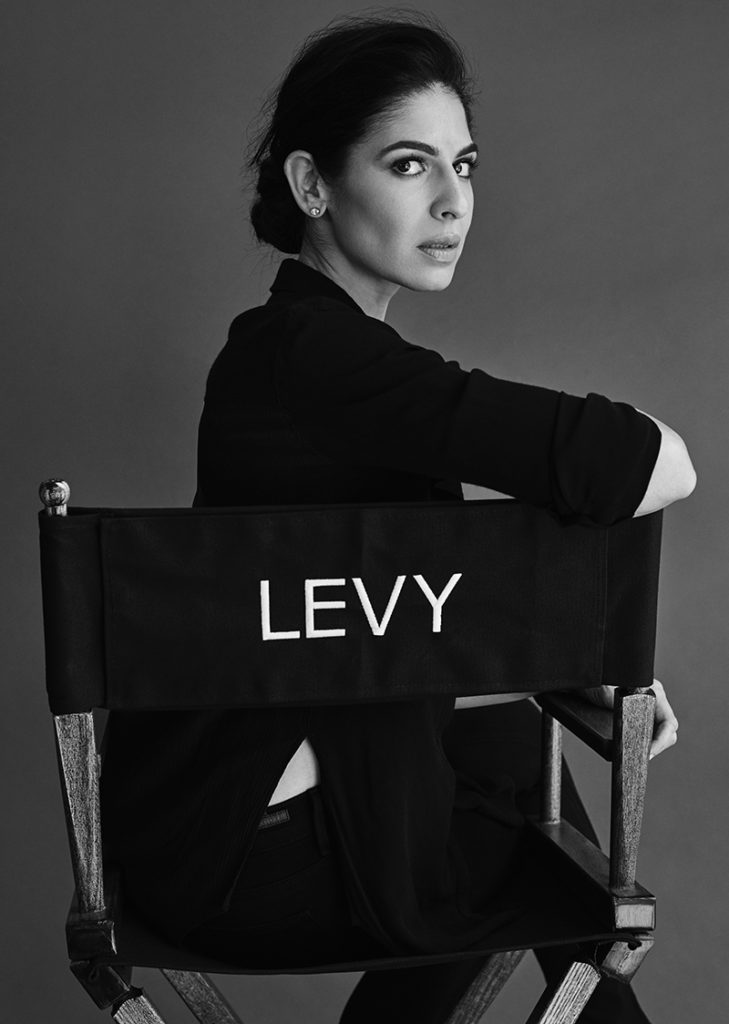
Is that how you were inspired to get into food?
I was never a girl that wanted to eat steamed vegetables. I’m half-Indian, half-Jewish—family and the way of showing love and celebrating is all about food and tradition and coming together around the dining table. So that’s when I started deciding that I could create healthy delicious food that was also going to heal and make me feel better. Slowly I weaned myself off all the traditional medicine and I realized I could create periods of time when I was in remission longer than when I was active, with eating this way. That’s really what I’ve continued to do.Did you have any health complications when you started trying to have kids?
I suffered a miscarriage before I had my first son. I was always someone that was like, Oh my God I want to be a famous actress and I want to be this and I want to be that and I can’t have a kid before I accomplish all of these things! My husband and I would fight so much about having a kid, and then I had a miscarriage and suddenly it was the universe’s way of being like, Oh really? You think you’re not ready, but you really are. Because suddenly you want what you can’t have, or what’s been taken away from you. So I think that’s something women don’t talk enough about. There are so many women who suffer miscarriages and it’s such a deeply painful experience, and so personal. But also so important because it’s actually happening all around us and we’re all experiencing it and dealing with it. But it’s so much easier when we deal with it altogether.“It was so humiliating and degrading and scary. Here I was, trying to take care of a baby that needed me, and I was so unwell and so tired and so scared. But I was so fierce about wanting to do right by my son.”
